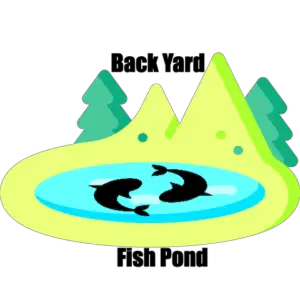How long can koi live? Some fish are known to live as long as 200 years, while others are known to live only one to ten years. Koi are more popular as pets in Japan than dogs. Just as in dog shows, there are regular koi competitions, and the winner of the competition is awarded a prize. Some koi are even taught tricks, such as passing through rings.
Hanako was the Oldest Koi Fish in the World
Scientists found that a scarlet-hued koi named Hanako had been living in a Japanese family pond for more than two centuries. The fish, whose name means “flower maid,” was born 25 years before Japan’s Declaration of Independence. The pond’s last owner, Dr. Komei Koshihara, kept Hanako for almost two centuries. Although reports of Hanako’s age appeared over the years, they went viral in February 2021 when an article about the bicentenarian fish sparked an online discussion.
There are many reasons why koi are so popular in Japan. Koi have a long life span – one of the most interesting is that they can live to over 200 years. But keeping koi is not for everyone. They require a lot of commitment, and keeping them requires dedication. Koi fish are notoriously hardy and require a lot of attention.
Japanese Koi Fish Live Longer Than Domestic Koi Fish
Most koi fish will live about a decade longer in captivity than their counterparts. In the wild, these fish may only live a few years, but in captivity, they can live for 70 years, sometimes even 100. Japanese koi fish have a life span of more than 40 years. That’s quite an impressive lifespan, especially for a fish of this type.
The lifespan of domestic koi fish is typically about 15 years, while Japanese pond-grown kiwi can reach as long as 60 years. This incredible longevity is largely due to genetics, although some fish live even longer. For instance, Hanako, a famous koi who weighed more than a ton and lived for over two hundred years, had a life span of 226 years.
Water Quality Affects Koi Lifespan
There are many factors that contribute to koi lifespan. Among them are the pond’s filtration system, koi food, and climatic conditions. If your pond is too cold in the winter, your koi may become less active or even die of asphyxiation. If this is the case, you’ll need to take steps to address the problem before it gets too severe.
The most common koi lifespan issue relates to the water quality. If your fish is exposed to algae that grow out of control, the water will have too little oxygen. A lack of oxygen will quickly lead to the sudden death of your koi. Also, your water must be the proper temperature and pH level. While your koi lifespan depends on these factors, proper nutrition and water quality can extend your koi’s life significantly.
Genetics Plays a Role in Koi Lifespan
Although koi longevity is subject to a large degree of chance, it is possible to find out how long a koi can live. A close relative of ornamental koi, the common carp, can live for as many as 47 years. Hanako, the oldest koi ever recorded, was 215 years old, and her owner, Dr. Komei Koshihara, explained that she inherited the fish from her grandmother, who had inherited it from “olden days”.
While the exact age of ornamental koi varies, they all have a few things in common. In New Zealand, for example, the optimum age for spawning is three to six years old. However, koi that live beyond these ages are extremely rare. In general, the lifespan of ornamental koi depends on the type of water that the fish are kept in. The right water conditions, proper nutrition, and safety of the fish can help them live longer.
Environmental Factors Affect Koi Lifespan
Koi need fresh water, a pond with a waterfall and a filtered air pump. Ensure these are working properly and check them frequently. Also, add plants to your pond for the added benefit of adding oxygen. Environmental factors that affect koi lifespan are primarily related to water quality. Poor quality water can cause stress to your koi and make them more susceptible to diseases. A few tips to consider when creating your koi’s environment include:
Clean water and a good pond filter can prolong your koi’s life. Koi’s metabolism slows during the cold winter months. Stop feeding them during the coldest months of the year, or at least decrease their diet. If you want to increase your koi’s lifespan, it’s important to choose high-quality fish food. Koi can live up to 200 years, but this is a rarity.

